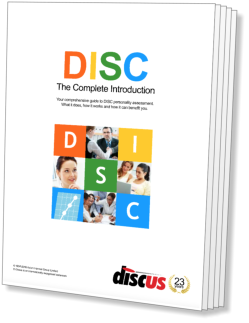High Dominance, Steadiness and Compliance

This is an unusual profile shape, as are all profiles containing both high Dominance and Steadiness. The main distinguishing feature of this style is their low Influence score, describing a style based more around practicality and rational thought than emotional considerations, and being generally reluctant to reveal information about themselves, their ideas or their feelings.
In common with many profiles showing three high factors, this is a complex behavioural style with varying responses to varying situations. In this particular case, more assertive and dominant behaviour can be expected in antagonistic or difficult situations, while a more relaxed (but far less assertive) style can be anticipated in less pressurised circumstances.
Relating to Others
The low Influence score in this profile shape indicates that relating to other people is not an area of particular emphasis for an individual of this type. Where they do respond to others on more than a purely practical basis, they will tend to react to comments or suggestions from other parties rather than offering direct input themselves. As a situation becomes more difficult, their willingness to make direct input will increase dramatically, but their readiness to communicate on a personal level will reduce proportionately.
Common Abilities
The emphasis of this type of person is on results and productivity. They work well with facts, and are at home with complex systems. They value effectiveness and efficiency, and will tend to embody these qualities in their approach to both their work and home lives. Although they have a clear view of their own personal aims in life, they are prepared to bide their time when necessary, and this thoughtful, patient approach helps them to avoid unneccessary risks or impulsive actions.
Motivating Factors
Profiles with multiple high factors have a variety of motivating factors, and these can express themselves in different ways according to circumstance. In this case, motivating factors include the achievement of results, time to adapt to changing situations, a full understanding of fact and detail and an avoidance of risk. There will clearly be times when elements of this complex group of motivations conflict with one another.
Sub-traits
The Sub-traits of this type are Efficiency, Thoughtfulness and Accuracy.
Style Card
DISC profiles with three high factors are not directly comparable with Style Card types.

